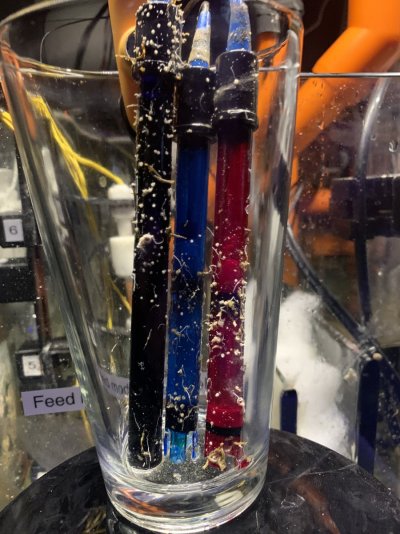I've had my Apex for about 6 months and today was my first time cleaning all 4 probes. I just followed the steps @jason2459 posted back on 2017. Submerged my probes in the vinger/water solution for 3-4 hours this morning and the build up cleared away like nothing. (Not sure if my submerged timeframe was overkill)Sorry to resurrect old post, but 3 years old, Still good to do this way or is there a better way ?
Recalibrated the 3 probes and they are back to providing "normal" readings. (I still manually test once a month to compare)

















